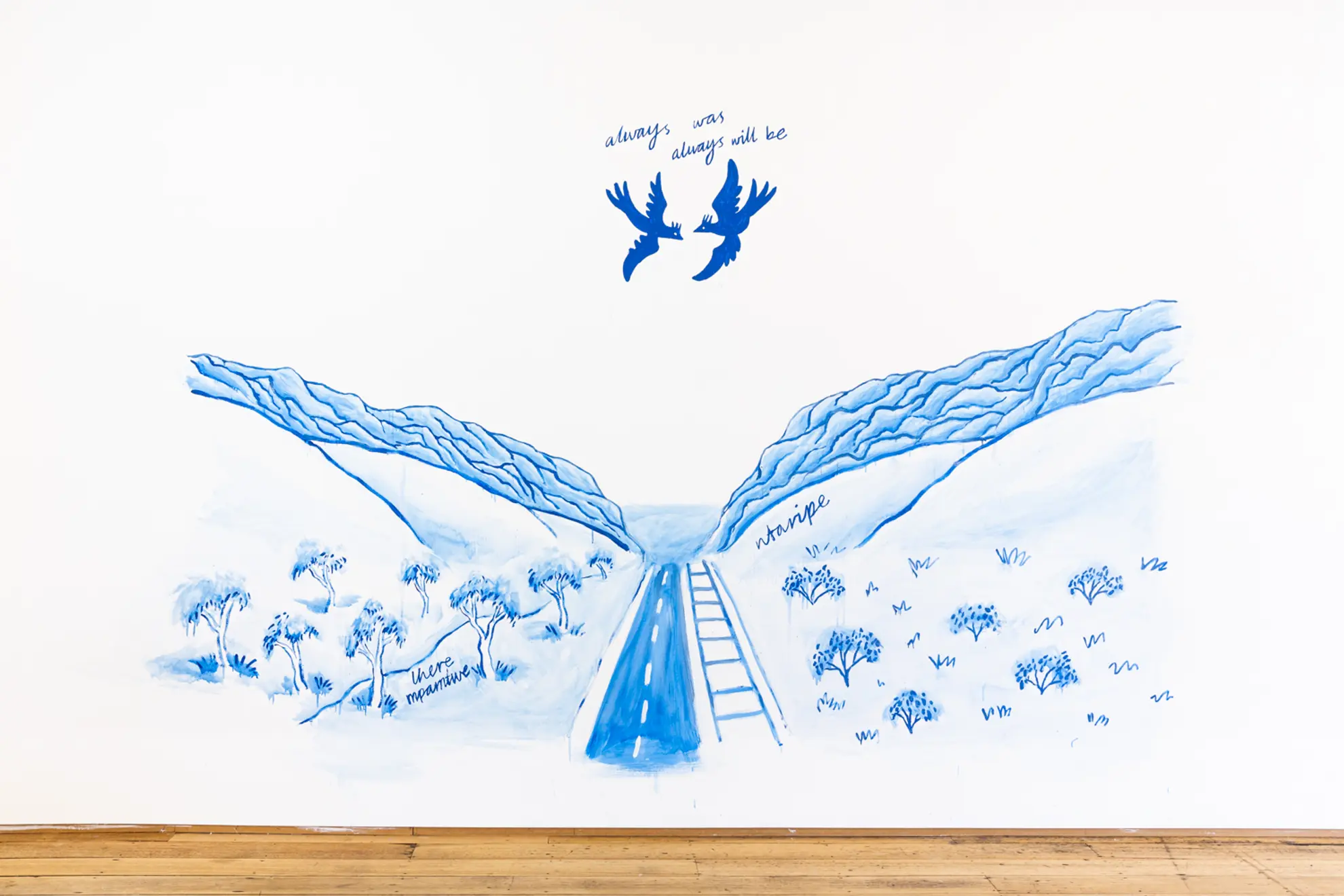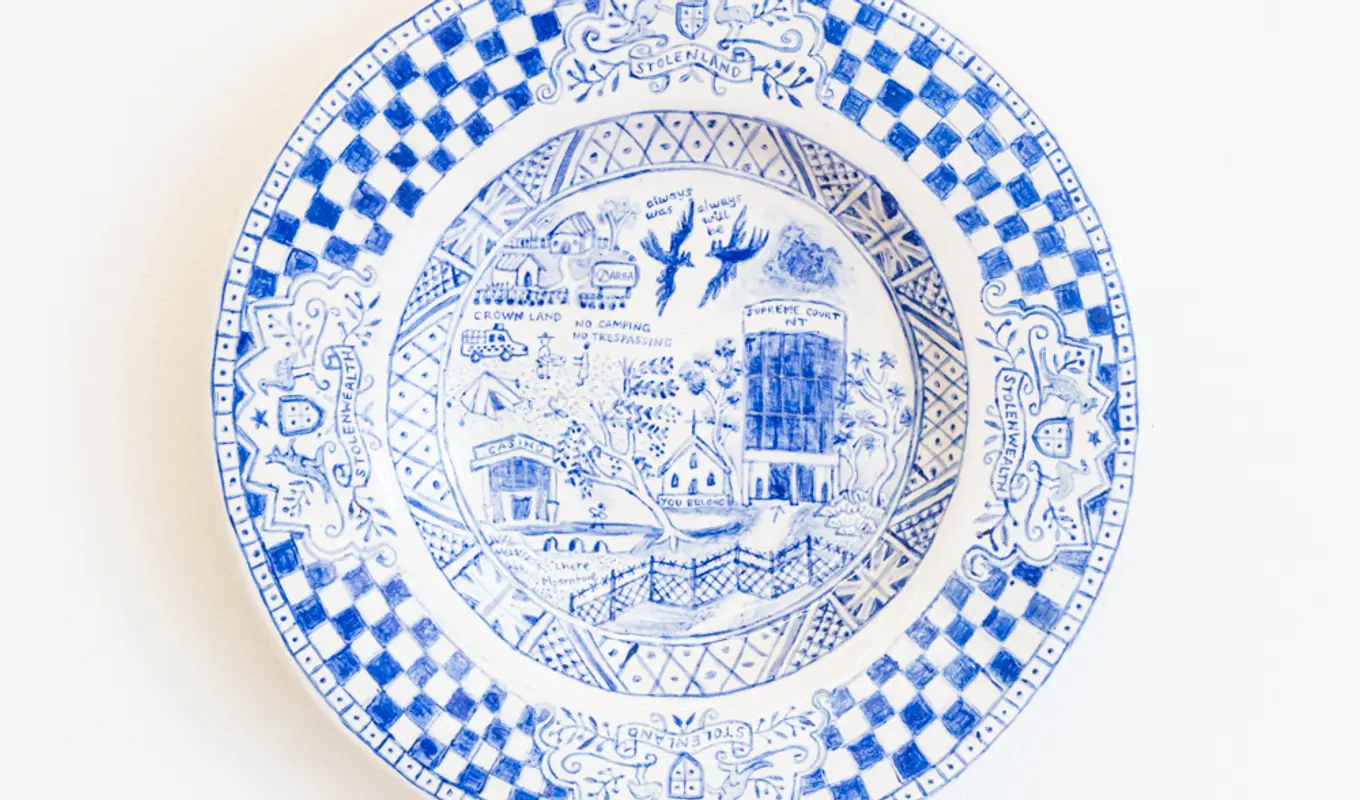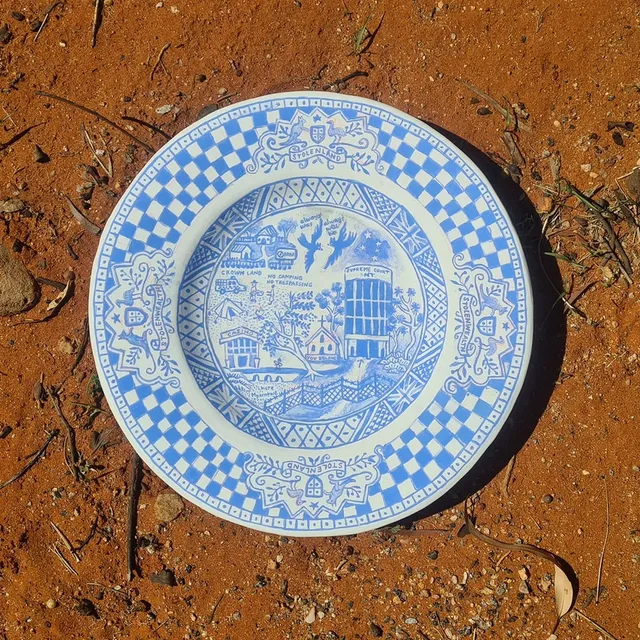Ender Başkan
“Optimal Listening”
Alice Springs has a population of around 25,000 people. It is not a metropolis but there’s a university, a hospital, a big law court and a cinema. There’s a Salvos, a Vinnies but also a couple of indie op shops, one of which has a sculpture of a giant hand with a second little hand attached to a big finger. There’s an Italian restaurant called ‘Casa Nostra’ and there was a San!ty that closed recently as the chain moved online. Nearby there’s Pine Gap, a US surveillance centre run by the CIA and the NSA that monitors satellites. There’s also a tiny US Air Force Base on the edge of town called ‘Detachment 421’, that serves to detect seismic activity, notably the detonation of nuclear bombs.
“The unique thing about Alice Springs is we are so remote” said Tech. Sgt. Andrew Bryan, 421 noncommissioned officer in charge of maintenance. “Because the unit’s location is so far removed from the main population of Australia they do not have to deal with problems caused by development… [It] makes for optimal listening.”1
Under global capitalism the peripheries are meant to serve the centres, serve capitals, serve capital. The vectors are clear and strong. Australia was set up to serve London but now that London serves Washington, we serve Washington too. Decolonisation aims to abolish this relationship on many levels, even underground. Even before the CIA, people listened. Alice Springs was once called ‘Stuart’ but it always was and always will be Arrernte land.
“In Alice Springs the bedrock is really close to the surface of the Earth,” Bryan said. “We don’t have to dig that deep to get into solid bedrock and having that acts as a giant microphone for everything going on in the earth. It gives us high fidelity on what we are seeing underground.”

Just as Harvey Norman, Christianity, KFC and Red Rooster arrive into the mix of Alice Springs life, so does Chris Ng’s Rooster Bowls, Batik, Blue Willow and Longevity pattern. Made from her hands they tell a story of messy and necessarily entangled lives. Those of us with layered cultural backgrounds have a unique role to play in breaking the black/white binary, in offering up our difference, putting ourselves into relation, helping to create shared knowledge out of the deadlock created by settler colonial capitalism. By employing forms traditional to her cultural background in critiquing and celebrating the place she lives, Chris pays her respects to Chinese-Malay ancestors as well as the Aboriginal past, present and future of this land. Even when traditional forms of culture have been co-opted and commodified by capital, they are able to be reanimated, made potent, in the hands of artists engaged in the kind of deep listening that Chris Ng is able to undertake on Arrernte land.
The utter madness of our current world is starkly apparent when you’re looking at it from Alice Springs. Militarisation, bureaucracy, control, oppression, extraction. It’s there, it’s everywhere. In Alice it is live and raw and in slo-mo. An unfiltered Australia. The brutality of the colony is on display, this is an apartheid situation. Aboriginal people, approximately half the population, are subjected to inordinate levels of policy and policing, most of it bad. Perversely, on stolen land, so much of the settler panic is about damage to private property, about ownership. Whereas some folks build higher fences others just leave their car doors unlocked. At the same time the human form and its demands can’t dominate so much, are swallowed by the land, a truly beautiful desert landscape. The people too, are beautiful when we are allowed to mingle, to share knowledge in peace. It is crucial, especially for Melbournians at Chris Ng’s show, to reflect on these words from Debord’s Society of the Spectacle:
“In our society, the spectacle is both the result and the project of the present mode of production. It is not a mere supplement or decoration added to the real world, it is the heart of this real society’s unreality. In all of its particular manifestations—news, propaganda, advertising, entertainment—the spectacle is the model of the prevailing way of life.”2

Alice Springs is not without spectacle, though its lack of it when compared to city life is one of the great joys of being there. Alice is also not merely a city-dweller’s vision of a sleepy, generic remote town. In the phrasing of poet and theorist Edouard Glissant, Alice Springs might be a place of relation. There are conditions there for shared knowledge to emerge. Despite its remoteness, Alice Springs has a dynamism that exceeds the sum of its components. Over 30,000 years of Arrernte life. A meeting place for First Nations people across Central Australia. Europeans settled here for reasons born of supply chain logistics: the telegraph, waterholes and nearby gold. People come and stay and go and keep thinking about it. Identity comes from movement too, not just fixity.
The latest trip advisor review of Red Rooster Alice Springs, dated 2/11/2023;
“Ordered food to be delivered half the order only arrived and that was stone cold. $20 worth of food just not delivered Rang 11 times nil answer wrote feedback and lodged complaint they been over a week they have not even bothered responding”3
How fast is fast-food in one of the most remote places on earth? How fresh is the fresh food when it is in such short and expensive supply? In Alice Springs I’ve often been told the main industry is ‘service delivery’. Many people, often in their twenties, move there to get a leg up in their careers as yo-pros. They are usually open-minded, well-intentioned city folk deployed in the name of administering services that go beyond stone cold roasted chicken and into healthcare, education and as far as the tentacles of the NT Intervention. There are also many immigrants who come for the plentiful work opportunities. There are some, not only US Air Forcers, who also come for the listening.

The vexing and often disarming questions that a settler might face when making work about ‘place’ in the colony – especially a place as significant as Alice Springs is in Aboriginal life – are answered in a careful, direct and sincere manner by Chris’ work. Where you from? was commissioned by three, geographically dispersed organisations West Space, Watch This Space and SITUATE, the subject matter being Alice, the place in which Chris lives. Melbourne audiences are fortunate to gain this unique insight into the bedrock of colonial life. Those of us who live here on the Wurundjeri or Boonwurrung lands of the Kulin nation are often subjected to so much spectacle that the severity of settler colonial capitalism on this continent is obscured from view. One such revelation Where you from? serves to highlight is that all our struggles are connected. Stone cold chicken is intrinsically linked to mass incarceration. What led settlers here is still what troubles this land today.

This essay was commissioned by West Space.
Ender Başkan lives and works in Narrm/Melbourne. He is a poet, writer and bookseller. He is the co-founder of the short-lived, high-spirited Study experimental social space in Brunswick. His novel A Portrait of Alice as a Young Man is a retelling of his travels to Arrernte Country. He is the winner of the 2021 Overland Judith Wright Poetry Prize. His writing has been featured in Overland, Cordite Poetry Review, Unusual Work, Meanjin, HEAT, Rabbit Poetry and Best Australian Poems 2023.

